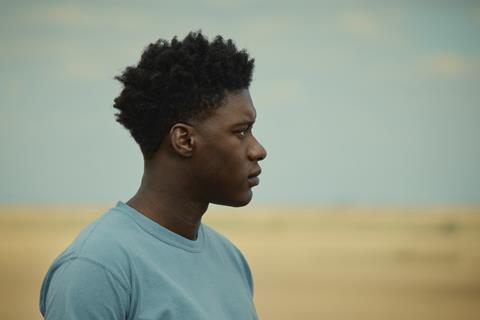A British Nigerian teenager struggles to adjust to life with his birth mother

Dir/scr: Shola Amoo. UK. 2019. 95 mins.
A tender evocation of a lost childhood and troubled growth into manhood, Shola Amoo’s (A Moving Image) partially-autobiographical The Last Tree is visually lyrical in its approach to an oft-told story. Yet while the narrative can hit familiar beats as it tracks a teen through a family crisis, there’s also a sense of freshness here, as Femi, a British Nigerian lad, tries to find himself and his heritage in a sea of strangeness. A shift to Lagos for the third act is crucial to the film’s embrace of motherhood as one of a core theme, giving Amoo’s film depth and a certain sense of ease.
Performances warm this delicate film, shot with care and fluidity by Stil Williams
Opening the Sundance Film Festival’s World Cinema Dramatic Competition, a prestigious Park City slot, should be the start of a commercial career which mirrors the film’s small stature and sensitive perspective. Festival exposure should be a given for Amoo’s second feature, undoubtedly followed by a carefully curated roll out and film-maker tours. It builds on A Moving Image, which dealt with the topic of urban gentrification through a mixed-media approach, to continue exploring Amoo’s personal story with increasing visual and dramatic confidence.
The Last Tree is a period piece, but delicately so, only evident in the soundtrack and props such as mobile phones and Walkmans. Femi, played as an 11 year-old boy by Tai Golding, has been sent to the countryside in Lincolnshire by his Nigerian mother to be looked after by doting foster mother Mary (Denise Black). He is clearly, in every step he takes, the only black person in the local school or village, but he is a confident child with a close-knit circle of friends who are united by their love of football. All this changes when his real mother (Gbemisola Ikumelo) comes to take him back.
Femi’s dreamy, dappled life comes to an abrupt end. He barely knows his mother, who has been in sporadic contact with her child, and he certainly is unaware of their Nigerian traditions or cultural heritage. Mary stays in contact, but he won’t be going back to Lincolnshire, and he is entirely impotent in the face of the powers that shape his life.
His mother brings him to a dismal flat on the 20th floor of a South London tower block which she has struggled to obtain in order to build a new life for them together – but it’s one he doesn’t want. When Femi can’t or won’t match up to her expectations, she beats him. Meanwhile, the demographics at the local inner city school are completely reversed, with his fellow students entirely black. Racism still helpfully exists however, something a child might discover if he or she is deemed to be too dark.
Amoo switches the tone of his film deftly between a halcyon if displaced childhood – heightened by all its ominous augurs of transience – to the harder London landscape. There’s a sense of temporal dislocation: all this could have taken place in a year, or a day. But when Femi becomes a teenager (a notable debut from Sam Adewunmi), there’s a risk that the hardness he uses as a defence mechanism will calcify his heart and soul as well. Using mute defiance as a weapon and alienated from all around him, Femi needs to push through his past and his “rotten attitude” to become a man.
Adewunmi is physically very developed to play a 16 year-old boy sitting his GCSE’s, but that qualm is easily silenced by the young actor’s expressive performance. In support, Gbemisola Ikumelo takes a role which might have been one-dimensional and turns it into an affecting portrayal of a woman with few options who has already gone further she might possibly have imagined. Their performances warm this delicate film, shot with care and fluidity by Stil Williams. The streets of Lagos don’t just provide context to a relationship here, they tell a visual story all of their own.
Production companies: Prodical Film & TV
International sales: Great Point Media, info@greatpointmedia.com
Producers: Lee Thomas, Myf Hopkins
Editor: Mdhamiri Á Nkemi
Cinematography: Stil Williams
Production design: Antonia Loew
Music: Segun Akinola
Main cast: Sam Adewunmi, Gbemisola Ikumelo, Tai Golding, Denise Black, Nicholas Pinnock






![The Brightest SunScreen[Courtesy HKIFF]](https://d1nslcd7m2225b.cloudfront.net/Pictures/274x183/3/5/0/1448350_thebrightestsunscreencourtesyhkiff_312678.jpg)















![The Brightest SunScreen[Courtesy HKIFF]](https://d1nslcd7m2225b.cloudfront.net/Pictures/100x67/3/5/0/1448350_thebrightestsunscreencourtesyhkiff_312678.jpg)

